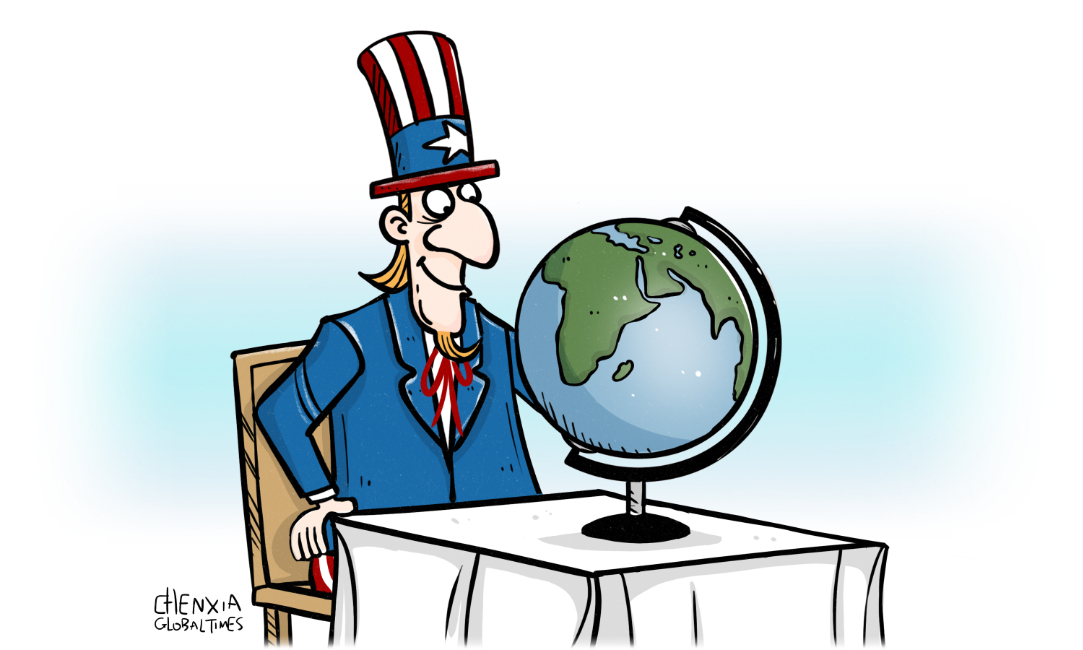
Illustration: Chen Xia/GT
According to Politico, dozens of African leaders are set to attend the US-Africa Leaders Summit from December 13 to 15 in Washington, but so far they shouldn't expect a one-on-one meeting with President Joe Biden.
Throughout the year, the US has held a series of summits, with the African continent becoming the only piece left for Washington to complete its "summit diplomacy puzzle." It is not difficult to see that Washington's main purpose in hosting this summit is for show. There is still some time before the summit, and the White House may still consider whether to arrange a one-on-one meeting with Biden. But frankly speaking, the US media is sending a signal which indicates that the White House lacks careful consideration. It reveals the consistent duplicity of US policy toward Africa.
In the context of considering how to compete with China, Biden has considered the importance of African countries, and is now trying to win over Africa. It has launched a number of initiatives, including Build Back a Better World, Power Africa, and the US-Africa Leaders Summit. All these seek to turn Africa into a pawn in line with US strategic interests, rather than sincerely providing practical help to African countries and people.
However, in the process of attempting to woo them, Washington has made many promises, but the final results have been few. "Africa is a continent with a relatively large number of developing countries, and assistance to African countries requires the provision of large amounts of funds, technology, and technical personnel. The current domestic political environment in the US, especially in light of the House of Representatives being controlled by the Republican Party next year, even if the Biden administration holds this summit, it is uncertain how much aid it can provide to Africa," Li Haidong, a professor at the Institute of International Relations at the China Foreign Affairs University, told the Global Times.
He Wenping, director of the African Studies Section at the Institute of West Asian and African Studies under the Chinese Academy of Social Sciences, also pointed out that the US has never had a detailed plan, but only has empty strategic slogans. In the past few years, it has never elaborated on how many power stations it has built for Africa or how many power transmission grids it has created. In China, on the contrary, at the Forum on China-Africa Cooperation, there is always a real discussion on what areas can be cooperated on, how much financial assistance can be provided, and how many agricultural technology centers can be built.
Ties between China and African countries have lasted generations. Whether at the political level, or at the economic and social level, China-Africa exchanges in all aspects have always shown a trend of growing consolidation. Changes in the international environment, or in the leadership of African countries won't affect it. The bilateral relationship is comprehensive and extremely resilient.
By contrast, the US' relationship with Africa is more of a speculative one. Washington's investments in Africa are not to serve the needs of African countries but to utilize them to engage in strategic competition with China and get African countries to follow the Western path and standards. Washington has never fully understood and respected African ideas, let alone gained the trust of African people. This determines that it is impossible for its strategies to gain the true support of African countries.
Africa has been colonized and plundered by Western countries for a long time in history, and the African people will never forget these painful memories. Racism in the US has also made many African countries feel uncomfortable when interacting with Washington. Therefore, if US policies toward Africa are not sincere enough, it will only lead to a situation where nothing is gained in the end.
One initiative after another put forward to compete with China has become empty promises, which African people are seeing. A new global public opinion survey of people in 25 countries has revealed that China is seen favorably by many in Africa. The African people have their own judgment of who is truly committed to the well-being of Africa. The images of China and the US in the eyes of African countries also have a functional role in making it clear to more countries that China is much more reliable, much more trustworthy, and much more predictable than the US.
The author is a reporter with the Global Times. opinion@globaltimes.com.cn




